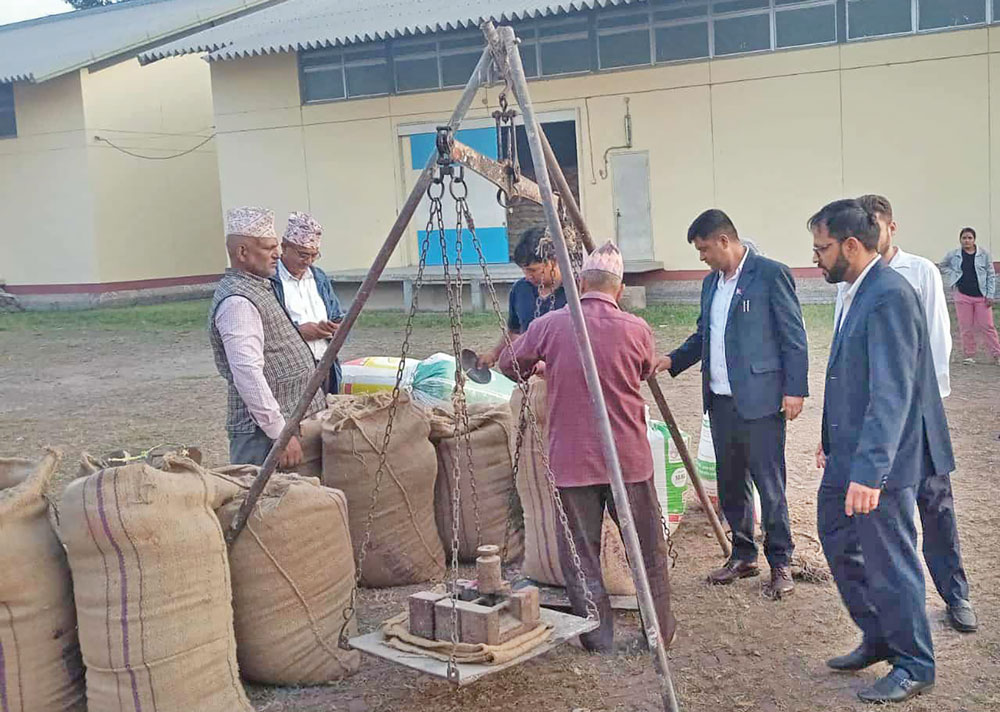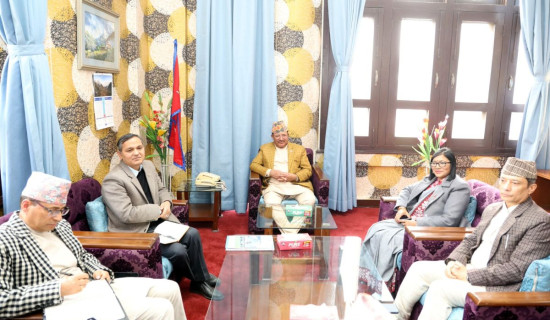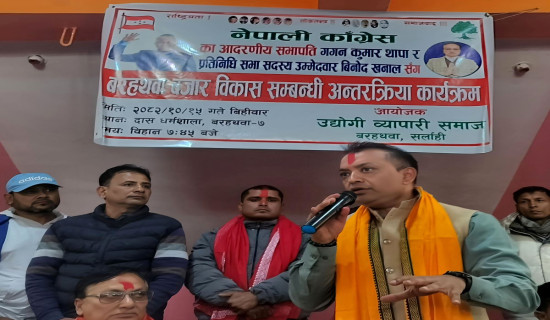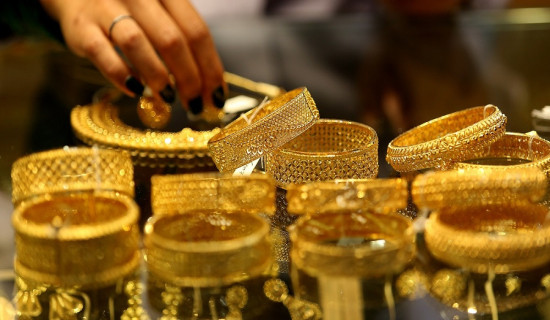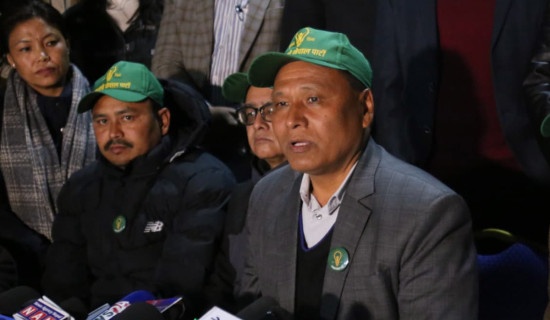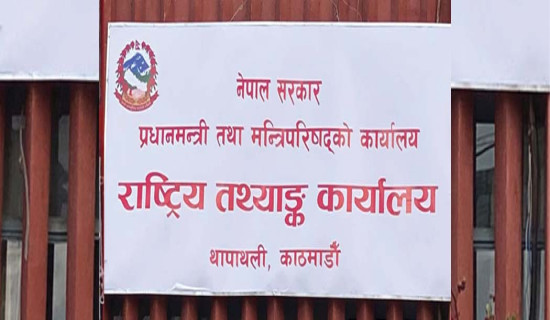- Friday, 30 January 2026
FMTC begins purchasing paddy
Kathmandu, Oct. 31: At a time when farmers have raised grievances over the delay in the government’s paddy procurement programme, the Food Management and Trading Company (FMTC) has begun purchasing paddy as part of its annual plan.
The state-owned enterprise has begun paddy procurement from its Dhangadhi Provincial Office since Tuesday.
"Following directives from the FMTC head office in Kathmandu, we initiated paddy procurement from farmers on Tuesday after receiving approval from the Chief District Officer on the same day," said Deepak Thapa, Chief of FMTC’s Dhangadhi Provincial Office.
According to Thapa, procurement activities are currently underway at six sub-centres under the Dhangadhi Office in Kailali district.
"The number of farmers bringing paddy to sell has been increasing since Wednesday. We purchased around 12 quintals of paddy that day," he told The Rising Nepal.
He added that the procurement process would continue smoothly at all six centres until the initial target set by the head office is achieved.
However, he said that some paddy brought by farmers had to be returned because it did not meet the required quality standards.
While purchasing paddy, we checked moisture, foreign matter, broken/damaged grain and mixed lower-quality grain.
According to Thapa, the moisture content in the paddy should not exceed 18 per cent in medium verities of paddy.
If the grain contains more water than this limit, it can spoil easily during storage, develop fungus, or lose quality.
The paddy should contain no more than 2 per cent of foreign materials such as stones, dust, straw, or husks and mixed lower-class grain should not more than 8-10 per cent based on the verities of paddy.
"Up to 5 per cent of the total grain can be broken or damaged. Higher amounts indicate poor handling or low-quality harvest, which lowers the value of the paddy," he said.
He said the standards should be different based on the verities of paddy and places.
In short, these standards help the FMTC ensure that the paddy it procures is of acceptable quality for storage and later distribution, while also maintaining fairness and uniformity in the buying process.
The FMTC has authorised the Dhangadhi Office to purchase 35,000 quintals of paddy in the first phase this year — a reduction compared to last year’s target of 55,000 quintals.
According to information officer of FMTC Madhav Mishra, rice procurement will begin in other places as soon as paddy harvesting begins.
Stating that paddy procurement has already started from Dhangadhi, he said that the company has planned to purchase paddy from other districts at the earliest. The company will purchase paddy from 13 different places, including Mahendranagar, Dhangadhi, Nepalgunj, Bhairahawa, Birgunj, Janakpur, Lahan, Rajapur, Biratnagar, Birtamod, Tulsipur, Jumla and Pokhara, said Mishra.
“We have already instructed related depots of the districts to purchase paddy.”
According to him, the company has been purchasing paddy based on the minimum support price fixed by the government and the market price.
The government has fixed the price of coarse paddy at Rs. 3,463.81 per quintal and of medium quality paddy at Rs. 3,628.33 per quintal for this year.
He said that as the rice procurement quota is limited, the priority order for procurement will be determined based on the token number.
He said that the FMTC has set a target to purchase around 180,000 quintals of paddy in the first phase.
He said that as the amount for the sale of rice will be paid through the banking system, it is mandatory for the farmers selling rice to have a bank account.
FMTC has issued a notice urging farmers to contact the FMTC office in their area to sell their paddy.
Similarly, it has also urged farmers to make a profit by selling their produce at the minimum support price set by the government.
However, due to the failure of the FMTC and local cooperatives to begin rice procurement on time, farmers of various places, including Bardiya, have been compelled to sell their paddy to private traders at cheaper rates, the farmers said.
They have been forced to sell their paddy at low price after traders refused to pay the government-fixed minimum support price.
They are selling their produce for up to Rs. 1,000 less per quintal than the government’s minimum support price.

